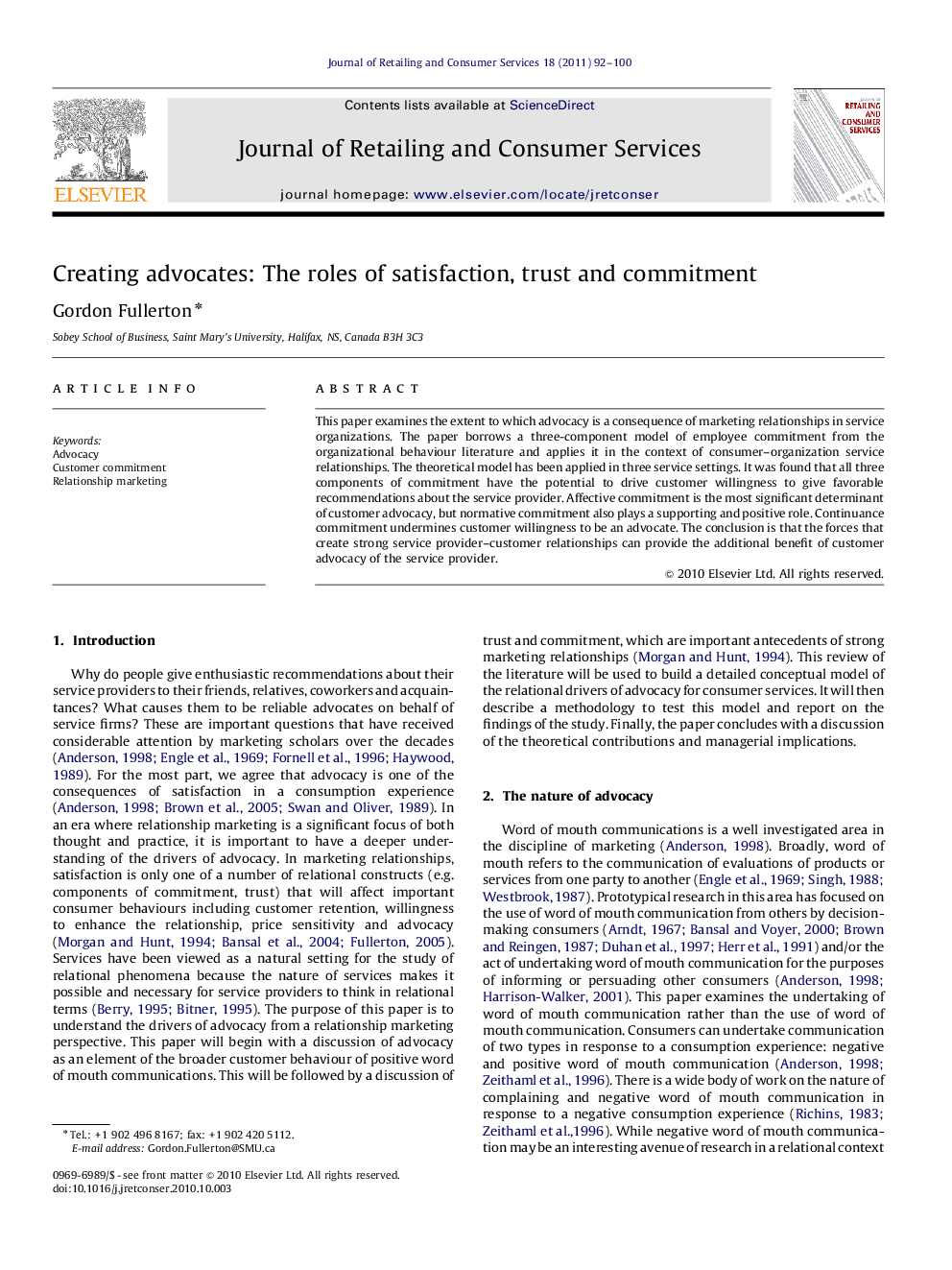| Article ID | Journal | Published Year | Pages | File Type |
|---|---|---|---|---|
| 1029200 | Journal of Retailing and Consumer Services | 2011 | 9 Pages |
This paper examines the extent to which advocacy is a consequence of marketing relationships in service organizations. The paper borrows a three-component model of employee commitment from the organizational behaviour literature and applies it in the context of consumer–organization service relationships. The theoretical model has been applied in three service settings. It was found that all three components of commitment have the potential to drive customer willingness to give favorable recommendations about the service provider. Affective commitment is the most significant determinant of customer advocacy, but normative commitment also plays a supporting and positive role. Continuance commitment undermines customer willingness to be an advocate. The conclusion is that the forces that create strong service provider–customer relationships can provide the additional benefit of customer advocacy of the service provider.
